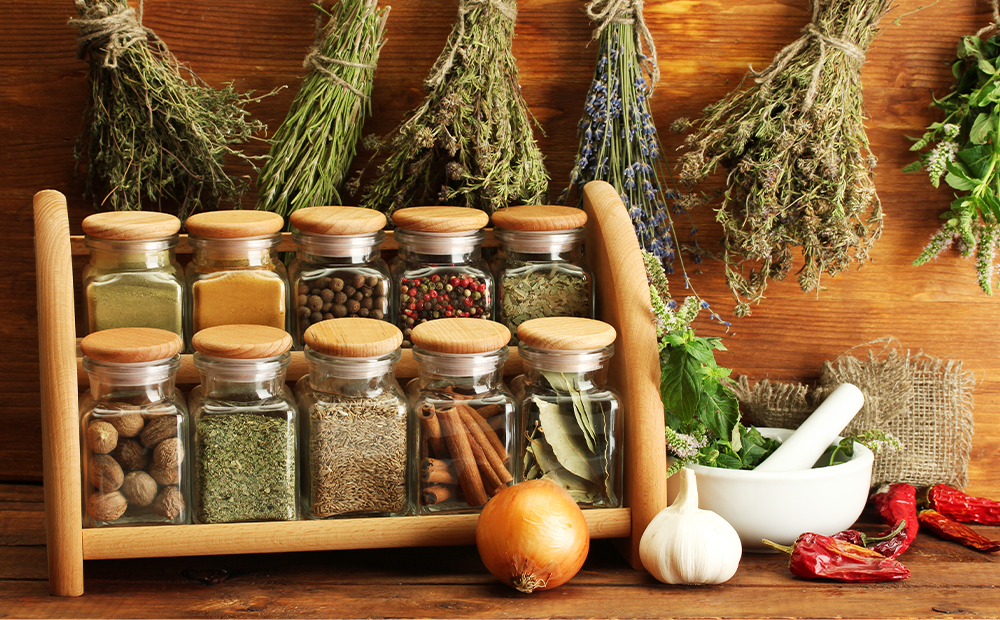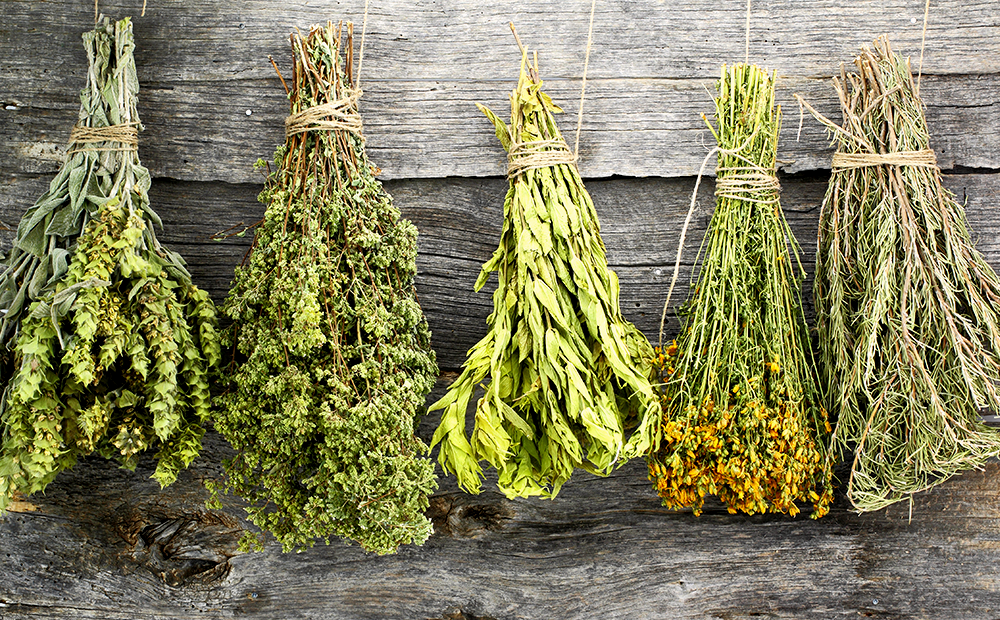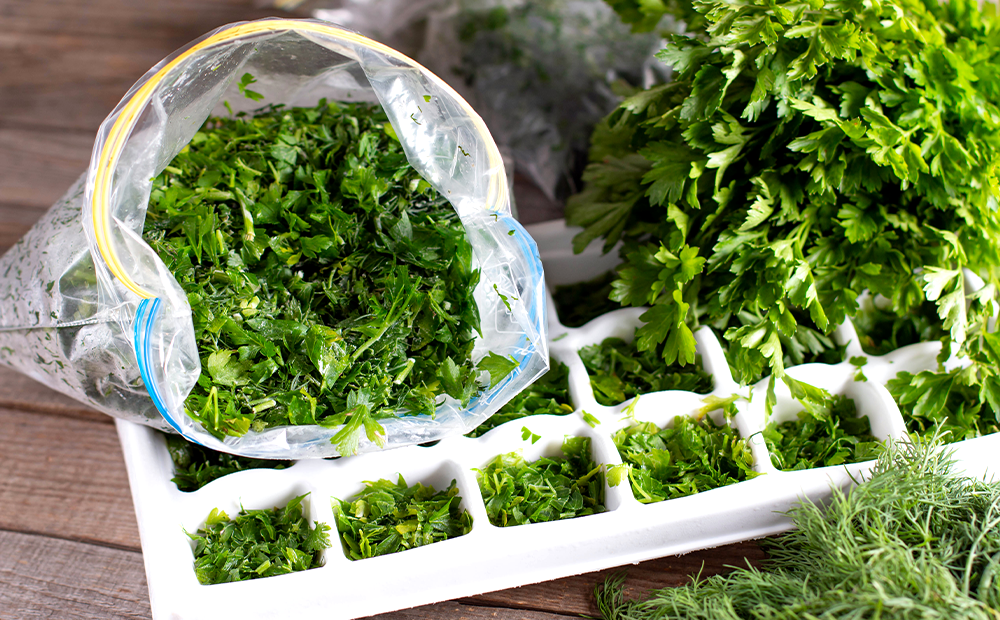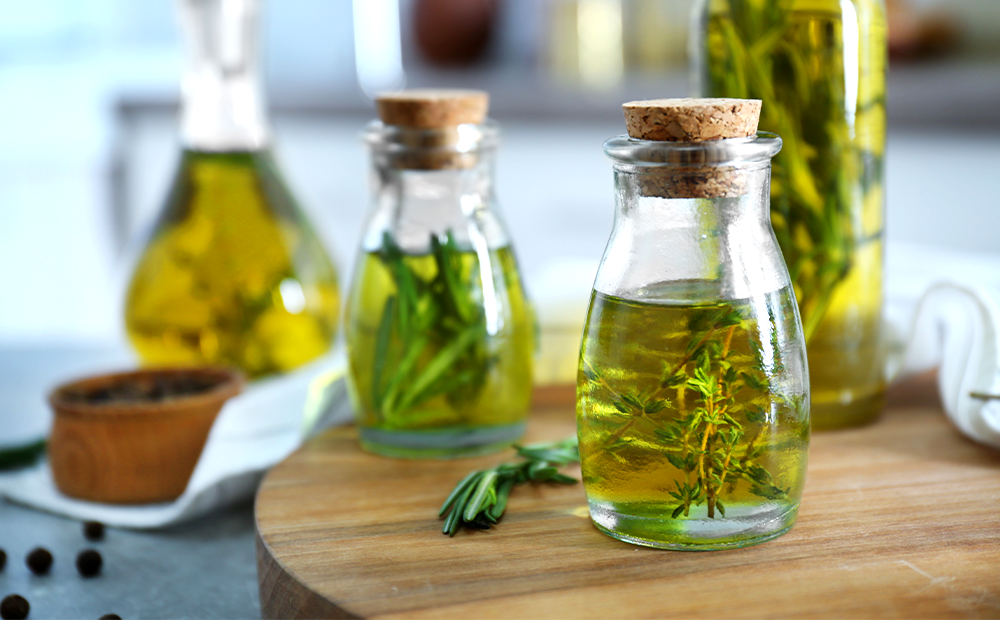HOW TO PRESERVE FRESH HERBS FROM YOUR GARDEN
It’s the time of year to be thinking about harvesting and preserving your garden produce so you can enjoy the flavors of summer all winter long. If you have a herb garden, make sure you keep some of that goodness to add to tasty recipes. Here are some ways you can preserve your herbs to get the most flavor from them.
Drying Herbs
So many herbs have such fantastic fresh flavor but lose a lot of it when dried. The key to retaining as much flavor as possible when drying herbs is to dry them fairly quickly. Some dry fast on their own, like marjoram, oregano, rosemary, and dill. For these fast-drying herbs, you can create small bundles, tie a string around the bundle, and hang it upside down from a curtain rod, and the Indianapolis summer will take care of the process.
To make it a little bit easier to gather them as they dry, insert the bundle leafy side down in a paper bag and loosely tie it shut around the stems, so some air can still get in. This will save you some mess, as well as making sure you get every bit of your harvest.
But, herbs like basil, chives, and mint will retain more flavor if they’re dried quickly, in a dehydrator or the oven. To dry herbs in the oven, lay them in a thin layer on a cookie sheet. You may want to line the cookie sheet with parchment paper to make it easy to pour them into bags or containers later. Set your oven to its lowest temperature setting, less than 180ºF if possible, and leave them in the oven for 2-4 hours. They’re done drying when the leaves crumble easily.
Remove them from the oven and let them cool slightly. Once they’re cool, which doesn’t take long since they’re pretty thin, you can put them straight into bags, containers, or jars as whole leaves. Storing them as whole leaves helps preserve more of the flavor.
Freezing Herbs
One of the best ways to preserve your herbs is by freezing them. Most herbs retain a lot more flavor when frozen than when dried. Harvest your herbs all at once, and add them to the food processor. Then drizzle in oil or water until it achieves a thick paste consistency. Spoon it into ice cube trays, freeze and then store in airtight containers or bags in the freezer until you’re ready to use.
Making Herb Infusions
You can get some seriously intense flavors from your fresh herbs by making infusions with carrier oils, vinegar, or alcohol.
You can also make herb-infused butter and salt, though you should use up the butter very quickly, so it doesn’t go rancid. Herb-infused butter is fantastic for grilling. To infuse butter you simply chop up your herbs quite small, then mix them well into softened butter. Store it in an airtight container in the fridge until the desired flavor has been achieved.
You can infuse almost any type of oil for infusions, but oils with a mild flavor tend to work the best since there is less flavor to compete with the herb flavor. Sunflower seed, canola oil, avocado oil, and olive oil all work well, though olive oil can have a relatively strong flavor.
Similarly, you can infuse any type of vinegar, but the herb flavor will be more pronounced in white vinegar than apple cider vinegar. When it comes to alcohol, you can infuse pretty much anything you want, but similar to oil and vinegar, you’ll get more pronounced flavors in spirits like vodka that have minimal natural flavor.
To infuse oil, vinegar, or alcohol, you’ll need freshly sterilized jars or bottles, your carrier, and clean freshly picked herbs. Check your herbs carefully and remove any yellowing or dying leaves, and make sure to remove any parts that may be showing signs of mold.
Then, fill your jars or bottles with herbs; you’ll want to pack quite a lot in, but not so much that the oil can’t get to the bottom. Top your containers up with your oil, vinegar, or alcohol, screw the lids on tight, and store them somewhere cool and dark for 2-4 weeks, or until the desired flavor is achieved.
Once you have the flavor you want, strain your oil, vinegar, or alcohol through a cheesecloth to remove the herbs. If you want it to be very clear, you can strain it again through a coffee filter to remove any tiny bits. Then transfer your infusions into new sterilized containers, seal, and store somewhere cool and dark.
These infusions may spoil or go rancid faster than store-bought ones because they don’t have preservatives. They should be used within six months, so if you’re gifting your infusions for the holidays, make sure to put a “use by” label on them.
Come visit us, it’s never too late to start your herb garden!







